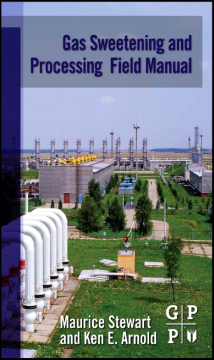
Additional Information
Book Details
Abstract
Although the processing of natural gas is in many respects less complicated than the processing and refining of crude oil, it is equally as necessary before its use by end users. The actual process used to separate oil from natural gas, as well as the equipment that is used, can vary widely. Gas Sweetening and Processing Field Manual provides engineers with the ability to understand and select the most efficient and cost effective method to fit their individual needs. Designed for engineers, technologists, and operations personnel involved in the design and operation of gas processing facilities, the book starts with an explanation of the terms and theories used throughout the industry. This is followed by clear and rigorous exposition of sweetness processes such as Solid Bed Adsorption, Chemical Solvents, Physical Solvents, Distillation, and Gas Permeation. Exercises appear at the conclusion of each chapter with hints in addition to full solutions.
Other topics include Design Procedure, Design Examples, Problems and Practical Solutions, Value of NGL Components, Liquid Recovery Process, Absorption/Lean Oil Process, Joule-Thomson, Refrigeration and Cryogenic (Expansion Turbine) Plants. Chapters involving applications cover Direct Conversion of H2S to Sulfur, Removal of H2S to Meet Pipeline Qualities, Removal of CO2 to Meet Pipeline Qualities and Selection Charts.
Engineers and process designers will find this text a valuable guide to gas sweetening process and equipment, both in terms of its application to efficient and cost effective operations. It will prove particularly useful to readers who want a "quick reference" guide to field operations and procedures as well as those readers who wish to increase their knowledge of best practices.
- Rigorous exposition of all natural gas sweetness processes
- Equipment and process trouble-shooting techniques
- Tips for diagnosing and solving equipment and process problems
- Exercises appear at the conclusion of each chapter
